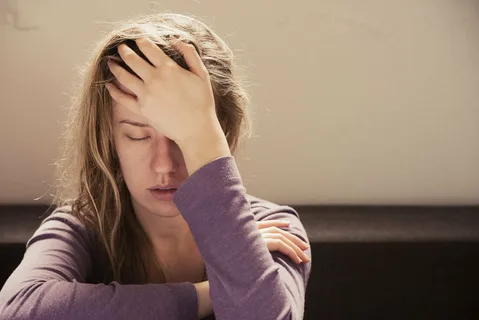
Anxiety disorders affect millions of people worldwide, disrupting daily life and overall well-being. Fortunately, there are numerous anxiety treatments available to help manage and alleviate symptoms. This article explores the most effective methods for relieving anxiety, from traditional therapies to natural remedies.
Understanding anxiety disorders
Before diving into anxiety treatments, it’s important to understand what anxiety disorders are. These disorders are characterized by excessive fear or worry and can manifest in various forms, including generalized anxiety disorder (GAD), panic disorder, social anxiety disorder, and specific phobias. Common symptoms include restlessness, rapid heart rate, difficulty concentrating, and muscle tension.
Professional anxiety treatments
Cognitive Behavioral Therapy (CBT)
Cognitive-behavioral therapy (CBT) is one of the most widely used and effective treatments for anxiety disorders. CBT focuses on identifying and changing negative thought patterns and behaviors that contribute to anxiety. Through structured sessions with a therapist, patients learn to challenge irrational fears and develop healthier coping mechanisms.
Medication
Medication can be a crucial component of anxiety treatment for many individuals. Commonly prescribed medications include:
- Selective Serotonin Reuptake Inhibitors (SSRIs): These are often the first line of treatment and include drugs like sertraline (Zoloft) and fluoxetine (Prozac).
- Benzodiazepines: While used for short-term relief, medications like diazepam (Valium) and alprazolam (Xanax) can lead to habit formation.
- Beta-blockers: Often used in social anxiety situations, these help manage physical symptoms of anxiety, such as rapid heartbeat.
Consultation with a healthcare provider is essential to determining the most appropriate medication and dosage for individual needs.
Lifestyle changes and self-help strategies
Regular Exercise
Physical activity is a natural and effective way to reduce anxiety. Exercise releases endorphins, which are chemicals in the brain that act as natural painkillers and mood elevators. Activities such as running, swimming, and yoga can significantly improve mental health.
Mindfulness and meditation
Mindfulness practices and meditation are powerful tools for managing anxiety. These techniques help individuals stay present and reduce the impact of negative thoughts. You can practice mindfulness through guided meditations, deep breathing exercises, and mindful movements like yoga.
Healthy Diet
A well-balanced diet plays a significant role in mental health. Foods rich in omega-3 fatty acids, such as salmon and walnuts, and those high in antioxidants, like berries and leafy greens, can support brain health. Reducing caffeine and sugar intake can also help manage anxiety symptoms.
Natural remedies and alternative therapies
Herbal Supplements
Researchers have found several herbal supplements to help with anxiety. Some popular options include:
- Kava: Known for its calming effects, kava can help reduce anxiety without affecting mental clarity.
- Valerian Root: Commonly used to promote relaxation and sleep, Valerian root can also alleviate anxiety symptoms.
- Passionflower: Because of its calming properties, people often use this herb to treat anxiety and insomnia.
Aromatherapy
Aromatherapy involves using essential oils to promote relaxation and reduce anxiety. Oils such as lavender, chamomile, and bergamot are known for their soothing effects. You can use them in diffusers, add them to baths, or apply them topically.
Acupuncture
Acupuncture, a traditional Chinese medicine practice, involves inserting thin needles into specific points on the body. Some individuals believe this treatment balances the body’s energy flow and reduces anxiety symptoms.
Social support and group therapy
Support Groups
Joining a support group can provide a sense of community and understanding. Sharing experiences and coping strategies with others who face similar challenges can be incredibly therapeutic. Support groups are available both in-person and online, catering to different needs and preferences.
Group Therapy
Group therapy, led by a trained therapist, offers a structured environment where individuals can work on their anxiety together. This setting allows participants to gain new perspectives, practice social skills, and receive feedback from both the therapist and peers.
When to seek professional help
While self-help strategies and natural remedies can be effective, it is crucial to seek professional help if anxiety significantly impacts daily life or becomes overwhelming. Mental health professionals, including therapists, psychologists, and psychiatrists, can provide comprehensive assessments and tailored treatment plans.
Emergency Situations
In cases where anxiety leads to severe symptoms such as panic attacks, thoughts of self-harm, or suicidal ideation, immediate professional help is necessary. Contact emergency services or reach out to a crisis hotline for support.
Conclusion
Anxiety treatments are varied and can be highly effective in managing symptoms and improving quality of life. From professional therapies and medications to lifestyle changes and natural remedies, there is a wide range of options available. By exploring and combining different treatments, individuals can find the most effective methods to relieve their anxiety and enhance their overall well-being. Remember, seeking help is a sign of strength, and support is available for those who need it.